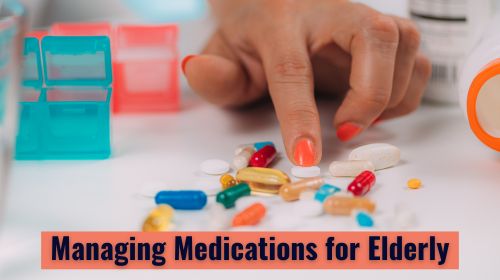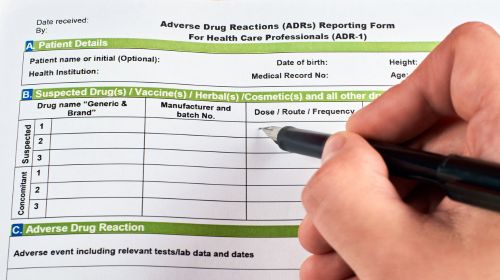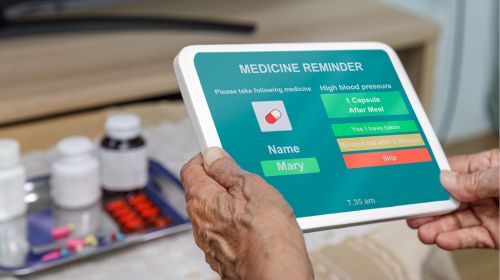As our population ages, managing medications for the elderly becomes crucial. This article explores the challenges faced by seniors and caregivers in medication management. From polypharmacy to memory-related difficulties and adverse reactions, we delve into the complexities. Practical strategies for safe medication administration and caregiver support are discussed to ensure the well-being of older adults.
Contents
Challenges in Medication Management for the Elderly
Polypharmacy: A Complex Predicament
Polypharmacy, the concurrent use of multiple medications to manage various health conditions, presents a significant challenge in medical management. With seniors often having multiple chronic ailments, the prevalence of polypharmacy is a natural consequence of addressing their complex health needs.
However, while intended to improve overall well-being, the practice of polypharmacy comes with potential risks that demand careful consideration. The elderly are particularly susceptible to the risks associated with polypharmacy due to physiological changes that affect how their bodies metabolize medications. To address the complexities of polypharmacy, streamlining medication regimens becomes crucial.
Healthcare professionals must meticulously assess the necessity of each medication, weighing the benefits against the potential risks. Simplifying medication regimens not only reduces the potential for adverse interactions but also enhances medication adherence, as managing a long list of medications can be overwhelming for the elderly and their caregivers.
Memory-Related Difficulties and Medication Adherence
Elderly individuals often encounter memory-related hurdles that impede their ability to adhere to prescribed medication schedules. These challenges, stemming from cognitive decline, can lead to missed doses or incorrect dosages, compromising the effectiveness of treatment regimens. The consequences of such lapses can be detrimental, affecting overall health outcomes.
To address this issue, implementing strategies that aid memory and enhance medication adherence is crucial. Pill organizers, segmented by day and time, provide a visual cue for seniors to stay on track. Additionally, reminder apps and alarms on smartphones offer timely notifications, mitigating the risk of forgetfulness.
Recognizing the impact of memory-related difficulties on medication management underscores the importance of tailored solutions. By integrating these strategies into daily routines, caregivers and healthcare professionals can significantly improve medication adherence among the elderly, ensuring that treatment plans yield optimal results.
Adverse Drug Reactions and Sensitivity
Aging bodies undergo physiological changes that can cause medications to be processed differently, making the elderly population more susceptible to adverse drug reactions. This susceptibility is underscored by the importance of vigilant monitoring for potential reactions. Adverse drug events can lead to severe consequences, ranging from discomfort to hospitalization.
Given this context, healthcare professionals play a pivotal role in safe medication management for seniors. They must consider both the patient’s age and medical history when prescribing medications. Tailoring prescriptions to individual needs minimizes the likelihood of adverse reactions, optimizing treatment outcomes. Regular assessments, open communication, and careful consideration of potential interactions are essential aspects of this process.
Safe Medication Management Strategies
Individualized Treatment Plans
Elderly patients often present a diverse array of health conditions, necessitating the implementation of personalized treatment plans. Recognizing the unique nature of these patients’ medical needs is essential for optimal outcomes. Individualized treatment plans take into account a multitude of factors, including allergies, existing medications, and overall health status.
The importance of tailoring treatment to each patient’s circumstances lies in mitigating the risks associated with adverse drug interactions. By considering existing medication regimens, healthcare professionals can identify potential conflicts or synergies, ensuring that the prescribed medications work in harmony rather than opposition.
Furthermore, the inclusion of patient allergies in an individualized treatment plan helps prevent adverse reactions that could worsen their health conditions. Holistically evaluating an elderly patient’s health status allows healthcare providers to identify potential contraindications or adjustments that can enhance treatment effectiveness.
Clear Communication and Education
Effective communication plays a pivotal role in ensuring safe and successful medication management for the elderly. Open and transparent dialogue between healthcare professionals, caregivers, and elderly patients is paramount to addressing potential challenges and minimizing risks.
Educating caregivers and elderly patients about medications, dosages, and potential side effects is vital. Caregivers need to have a comprehensive understanding of the medications their loved ones are taking, enabling them to provide the right support.
Likewise, elderly patients should be informed about their medications to enhance their cooperation and adherence.
To facilitate communication, various resources and tools are available. Medication charts, detailed instructions, and written information can be shared with caregivers to ensure consistency and accuracy. Moreover, technology-driven solutions like secure online portals allow healthcare professionals to communicate directly with caregivers, providing real-time updates and addressing concerns promptly.
In healthcare settings, professionals must ensure that instructions are clear and easily comprehensible. Offering opportunities for caregivers to ask questions and seek clarification enhances their confidence in managing medications at home.
Regular Medication Reviews
Periodic medication reviews hold paramount importance in ensuring the safe and effective management of medications for the elderly. As health conditions evolve, the medications prescribed must be reevaluated to maintain optimal therapeutic outcomes and prevent potential risks.
Adapting medication regimens in response to changes in health status is essential. The aging process can lead to shifts in medical needs, making it imperative to assess whether prescribed medications remain appropriate. By periodically reevaluating the necessity and efficacy of each medication, healthcare professionals can ensure that treatments remain aligned with evolving health conditions.
Healthcare professionals play a central role in conducting thorough medication reviews. This involves assessing the patient’s current health status, reviewing medication lists, and identifying any changes in response to treatments. Adjustments may include altering dosages, discontinuing unnecessary medications, or introducing new treatments based on updated medical information.
Regular medication reviews also provide an opportunity for patients and caregivers to voice concerns, ask questions, and provide insights into any observed changes in the patient’s condition. Collaborative discussions enable healthcare professionals to make informed decisions that optimize medication regimens and promote patient well-being.
Importance of Support for Caregivers
Empowerment through Knowledge
Caregivers hold a vital role in the responsible management of medications for the elderly, often acting as the bridge between healthcare professionals and patients. Equipping caregivers with comprehensive knowledge about medications and administration techniques is paramount to ensuring the safety and well-being of their elderly loved ones.
The pivotal role caregivers play in medication management cannot be overstated. They oversee dosages, schedules, and potential interactions, making them essential partners in healthcare. By arming caregivers with accurate information, the potential for errors and complications can be significantly reduced.
Educational resources, workshops, and support groups are valuable tools for empowering caregivers with the knowledge they need. These platforms provide insights into medication purposes, side effects, and proper administration methods. Workshops may cover topics such as recognizing adverse reactions, managing potential drug interactions, and addressing common concerns faced by caregivers.
Support groups offer caregivers a space to share experiences, ask questions, and learn from others facing similar challenges. Such forums foster a sense of community and enable caregivers to gain practical insights from one another’s experiences.
Collaboration with Healthcare Professionals
Collaborative efforts between caregivers and healthcare providers can pave the way for the effective management of medications for the elderly. This partnership optimizes care by pooling insights and resources from both sides of the caregiving spectrum.
The benefits of this collaboration are manifold. Caregivers bring intimate knowledge of their loved one’s daily routines and behaviors, which can influence medication adherence and overall well-being. On the other hand, healthcare professionals contribute their expertise in medical treatments and interactions. This synergy enhances patient-centered care.
Sharing information about patient health status, medication adherence, and any observed changes is pivotal in this collaborative endeavor. Open lines of communication ensure that healthcare providers have a complete picture of the patient’s progress, enabling them to make informed decisions. Caregivers’ insights provide valuable context that helps healthcare professionals tailor treatments and monitor potential side effects.
Utilization of Technology
Medication reminder apps have emerged as a practical tool to help elderly individuals and caregivers stay on track. These apps offer timely notifications, ensuring medications are taken at the prescribed times. They serve as a virtual assistant, mitigating memory-related challenges and reducing the risk of missed doses.
Online tracking tools provide a comprehensive overview of medication regimens, dosages, and schedules. Caregivers and healthcare providers can collaborate remotely, staying informed about adherence and any potential issues. This real-time information promotes transparency and informed decision-making.
Virtual healthcare consultations further elevate the role of technology in medication management. These consultations enable caregivers and elderly patients to engage with healthcare professionals without the need for physical visits. It’s an efficient way to address concerns, receive guidance, and monitor progress, particularly useful for individuals with mobility challenges.
Technology bridges the gap between healthcare providers and caregivers, fostering seamless communication. Updates, clarifications, and adjustments can be relayed promptly, ensuring that elderly patients receive accurate information and support.
Conclusion
A comprehensive approach that combines medical management strategies, caregiver support, and the utilization of technology is needed for the effective management of medications for the elderly. From addressing challenges like polypharmacy and memory-related difficulties to emphasizing personalized treatment plans and clear communication, the collective effort ensures safe and effective medication administration. Crucially, caregivers play an instrumental role in this journey, empowered by knowledge and collaboration with healthcare professionals.











